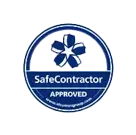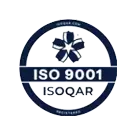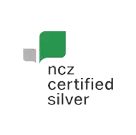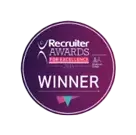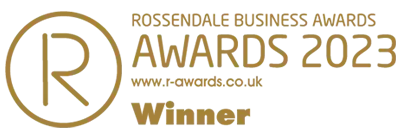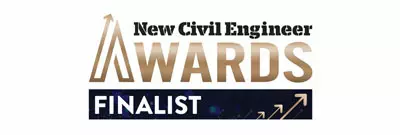
At Finlay Jude Associates Ltd, our dedicated team of experienced consultants are here to help and provide advice on how to make your CV work for you. When it comes to job hunting, your CV is paramount. Get it right, and you’ll have an interview in no time, but get it wrong, and you may face rejection after rejection.
A CV should be tailored to the specific role that you are applying. However, all CV’s will follow a similar structure.
What is a CV?
Your CV, short for curriculum vitae, is a personal marketing document used to sell yourself to prospective employers. It should tell them about you, your professional history and your skills, abilities and achievements. Ultimately, it should highlight why you’re the best person for the job.
A CV is required when applying for a job. In addition to your CV, employers may also require a cover letter and a completed application form.
While the structure of a CV is flexible, bending to your unique skill set and experiences, there are particular sections that employers expect to see on your CV regardless.
Here are the sections you must include in your CV:
Name, professional title and contact details
The first part of your CV, positioned at the top of the page, should contain your name, professional title and contact details. Under no circumstances should you title your CV with ‘curriculum vitae’ or ‘CV’ as it’s a waste of valuable space. Treat your name as the title instead. When it comes to your contact details, your email address and phone number(s) are essential. You simply need to list your town and county, and not your home address. You can also include a link to your LinkedIn profile in this section – but ensure its up to date.
Personal profile
A personal profile, also known as a personal statement, career objective and professional profile, is one of the most important aspects of your CV. It’s a short paragraph that sits just underneath your name and contact details giving prospective employers an overview of who you are and what you are all about. You can tailor your profile to every job you apply for, highlighting specific qualities that match you to the role. Aim to keep your personal statement short and sweet, and no longer than a few sentences. To make the most of this section, you should try to address the suggested following:
Experience and employment history
List your experience in reverse chronological order as your recent role is the most relevant to the employer.
When listing each position of employment, state your job title, the employer, the dates you worked and a line that summarises the role. Then bullet point your key responsibilities, skills and achievements, and bolster each point with powerful verbs and figures to support each claim.
It helps to choose the duties most relevant to the job you are applying for, especially if it’s a long list. If you have many years’ worth of experience, you can reduce the detail of old or irrelevant roles. If you have positions from more than 10 years’ ago, its optional to include these.
Education and qualifications
Like your experience section, your education should be listed in reverse chronological order. Include the name of the institutions and the dates you were there, followed by the qualifications and grades you achieved.
If you have recently left education, you may write your degree, A-levels or GCSEs (or equivalents) like so:
Institution name – Dates attended (from – to)
Qualification/subject – Grade
If you have a degree, you could list a few of the most relevant modules, assignments or projects underneath.
For professionals that are a little further along in their careers, or have many certificates in their repertoire, you can lay your qualifications out in this way:
Qualification, grade – Institution – Year
Additional sections
There is a range of additional sections that may strengthen your CV and highlight your skills. Here are just a few you can include if you have room:
Key skills: If you’re writing a functional CV, or have some abilities you want to show off to the employer immediately, insert a key skills section underneath your personal profile. You should aim to detail four to five abilities at most.
Hobbies and interests: If you feel that your CV is lacking, you can boost your document by inserting a hobbies and interests section at the end. This can help to show how well you fit into the company or the industry. For example, if you’re applying for a mechanical role you may wish to include a hobby of working with engines or mechanical processes.
References: You don’t have to include these on your CV, put simply ‘references available on request’ will do.
Interview Tips
Job interviews are now conducted in a variety of different formats, these can include:
Our highly trained and experienced consultants will provide you with a comprehensive briefing on any client that we arrange interviews for and will support you throughout the interview process. We are here to help you through your interview journey.
How to make a good first impression
In the first few seconds of meeting you, an interviewer will make a judgement, so it’s important to make sure it’s a positive first impression. Dress for success, ensure that you are wearing a suitable professional outfit. When you first meet with the interviewer, smile confidently and where appropriate shake their hand. Avoid being late as this not only makes a bad impression, but it may cause you to become flustered or stressed.
How to research the employer before your interview
Pre-interview research is so important. If you’ve done your job interview preparation properly, you should be able to confidently demonstrate your knowledge during the interview and impress your prospective employer. Start by Googling the employer and checking out its website, social media profiles and other literature available online. You want to try and develop a solid picture of the company’s goals and what it stands for. Not only is this to prove to the employer that you know your stuff and are serious about joining the company, but also to help you devise any questions you might want to ask.
Promoting your skills and abilities
Though this point may sound obvious, promoting yourself something that many find an uncomfortable or alien task. Remember, the interview is your chance to demonstrate why you are the best person for the job. Employers see a job vacancy as a problem, a gap that needs to be filled, so you need to market yourself as the solution to their problem. You should know your CV and the job description inside out. Use these documents to guide you through the interview, and pick examples of your experience or education that demonstrate why you would be successful in the role. Be sure to tailor each pitch to the job you’re applying for. Pick the examples that fit best with not only the role but also the company and its values.
Using the STAR method to answer interview questions
Once you have got to know your CV and the role you are interviewing for, you must prepare for interview questions. Each time you reference one of your skills you should support it with an example to prove to the interviewer that your skills are genuine. A popular technique for illustrating your skills is the Star Method:
Situation: Give some context to the story you’re about to tell, outline where you were and why you were there.
Task: Describe what you were doing and if you faced any challenges whilst doing it.
Action: Then explain the actions you took to complete the task and how you tackled any challenges you faced.
Results: Finally, reveal the outcome, this should demonstrate your skills, what you achieved and also anything you learnt from the situation.
Keep this method in mind and come up with a few go-to examples you can use in the interview. If you have done your research, you should be able to tailor these examples more specifically to the role you are applying for.
Improving your body language
Your body language will say a lot about you. Make sure you are aware of how you are presenting yourself and make your body language work for you. Using your hands a lot when talking can make your stories more animated and aid communication, but be careful not to go overboard with your gestures. You want to look confident and professional, so avoid slouching in your chair, and try to smile and maintain eye contact with your interviewer too.
Dealing with nerves
If you’ve done all the correct job interview preparation and you are feeling clued-up and confident, hopefully, you shouldn’t feel too nervous. This being said, interviews (especially if it’s for your dream job) can be a bit nerve-wracking. Therefore, learning how to master your nerves so they don’t get the better of you is an important step.
You should try to come across as calm and confident, so be aware of your breathing throughout. If you begin to feel stressed, take a few subtle deep breaths.
Listen carefully to the interviewer so you don’t miss their questions, and focus on the answers you’ve prepared. If you build up a rapport with your interviewer, this can also help you to relax and feel more at ease around them.

